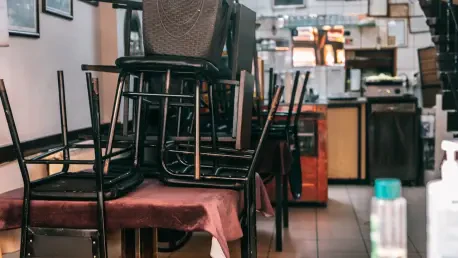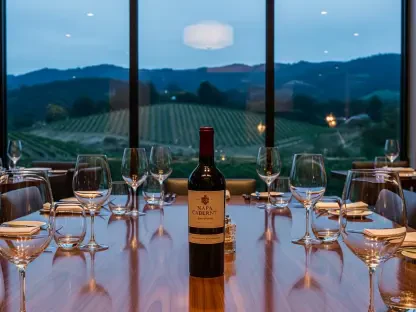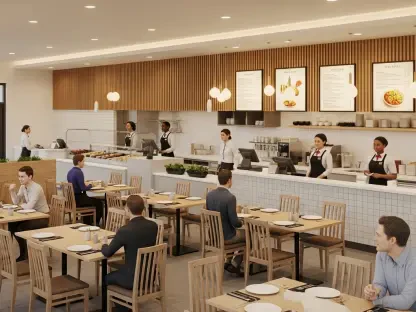In recent times, Tucson has witnessed the closure of two notable restaurants situated on North Oracle Road, reflecting broader challenges within the culinary industry. These closures, triggered by a variety of factors, highlight the intricate balance restaurateurs must maintain between preserving cultural heritage and adapting to rapidly changing consumer preferences. Both restaurants, El Chinito Gordo and Charro Vida, were unique in their offerings and stemmed from rich cultural lineages and innovative culinary concepts. Their closures not only mark a significant shift in the local dining landscape, but also underscore the persistent struggles that many establishments continue to face in a post-pandemic world.
El Chinito Gordo’s Departure
A Tradition of Family Recipes and Culinary Innovation
El Chinito Gordo, which began operations in December 2019, quickly became known for its unique menu rooted in familial recipes from Guadalajara. Situated at the historic site of the former Club 21 Mexican Restaurant, it aimed to uphold a legacy while introducing a new wave of traditional culinary arts. Dishes like chile relleno con camarones and the chorizo burger, renowned for its spicy chorizo sauce with Oaxaca cheese, became household names. Furthermore, the restaurant boasted a diverse array of tacos, with an impressive 17 varieties and inventive margaritas infused with local flavors like prickly pear and jalapeños. Nevertheless, despite these offerings, maintaining profitability amidst evolving consumer trends and operational costs posed substantial challenges. Owners expressed gratitude towards their support network, subtly hinting at underlying difficulties without delving into specific closure reasons.
Struggles and the Closure Decision
Navigating a turbulent economic landscape, El Chinito Gordo faced adversity in balancing creativity with financial sustainability. Managed by Maria Ochoa, and with owners Bianca and Lenny Mark, along with partners Felicia Chavez and Mark Bonillas, the establishment served as more than a mere restaurant. Its name, an affectionate nod to family ties, concealed the myriad operational challenges faced over the years. Attracting a consistent customer base proved increasingly difficult, especially when operational costs escalated following the pandemic. Despite innovative menu offerings, these prevailing financial constraints eventually led to the closure decision, reflecting industry-wide challenges exacerbated by the lingering post-pandemic environment. The distinctive culinary vision, while resonant and imaginative, underscores the reality that sustainability remains a crucial yet elusive goal for many in the food service sector.
Charro Vida’s Closing Chapter
Efforts Toward Health-Conscious Dining
Charro Vida, which opened its doors in Spring 2019, was envisioned as the health-centric counterpart to the famed El Charro Café, part of the course led by the Flores family. Under the Si Charro brand, it strived to introduce a fusion of Sonoran Mexican flavors with Mediterranean dietary philosophies. The restaurant aimed to accommodate a wide range of dietary preferences, from vegan to keto and gluten-free diets, reflecting growing consumer trends toward health consciousness. Initially promising, this ambitious endeavor found itself grappling with unprecedented disruptions during the pandemic, leading to temporary closures and swift operational pivots to embrace menu options that aligned with takeout and delivery. However, these changes, intended to maintain relevance and adaptability, resulted in struggles balancing menu diversity with cost-effectiveness, pointing to a challenging operational terrain shared by many contemporary eateries.
Navigating Pandemic-Induced Challenges
Faced with profound disruption and forced adaptation, Charro Vida had to recalibrate its strategy continually. Even with endeavors such as introducing more portable menu options like grain bowls tailored to varied customer needs, the restaurant encountered significant difficulties in adjusting menu offerings to maintain profitability. Attempting to appeal to an audience increasingly inclined toward health-conscious dining presented notable challenges, including shifts in consumer behavior and rising operational expenses. Statements from area manager Stacy Ethington echoed widespread industry reflections on the economic instability introduced by the pandemic, underscoring the restaurant’s struggle to establish a sustainable foothold. Despite the Flores family’s rich legacy, acquiring and retaining a stable customer base amidst such turbulent conditions proved daunting. These complexities encapsulate a broader narrative of resilience and relentless adaptation amid shifting culinary landscapes.
Reflections on Industry Trends
Evolving Consumer Tastes and Economic Pressures
The closures of El Chinito Gordo and Charro Vida reflect broader industry dynamics where consumer tastes are continually evolving, driven by diverse cultural influences and health-conscious trends. Tucson’s culinary scene has long been characterized by its vibrant and eclectic dining offerings, with restaurateurs increasingly exploring daring combinations of traditional and modern cuisine. However, the recent closures highlight the pressing need for businesses to remain agile and responsive to both consumer trends and economic pressures, which have become more pronounced in the current climate. Establishments must possess an intrinsic ability to pivot and innovate, striking a balance between menu creativity and financial viability, ultimately catering to a more discerning and demanding customer base.
Lessons and Future Directions
Within the broader context of Tucson’s dining landscape, the closures of these establishments offer poignant lessons for future culinary endeavors. Restaurateurs must continually navigate an ever-shifting marketplace that requires both ingenuity and economic foresight. The post-pandemic environment underscores the necessity for adaptive strategies and robust financial resilience, with restaurants needing to reevaluate conventional operational models in favor of structures that accommodate flexibility and sustainability. Moreover, while closures can signify profound change, they also present opportunities for reinvention and understanding consumer expectations more deeply. As Tucson embraces its dynamic and evolving food culture, these experiences chart a course for fostering a more innovative, resilient, and culturally attuned dining future.
Enduring Influence and Opportunities
Cultural Heritage and Continuous Innovation
Despite their closures, El Chinito Gordo and Charro Vida leave behind lasting influences on Tucson’s culinary culture. Their distinct approaches, from traditional familial ties to emerging health-centered dining, championed the integration of diverse culinary expressions. Ultimately, they contributed to an enriched appreciation of culinary diversity and innovation within the city. As venues continue to adapt to shifting culinary norms, recognizing the intricate balance between cultural authenticity and consumer preferences remains paramount. The exploration of new offerings, especially those that challenge typical dining expectations, will continue to be integral to the trajectory of Tucson’s culinary identity.
Embracing Change for a Vibrant Future
Tucson recently experienced the closure of two prominent restaurants on North Oracle Road, a sign of broader challenges within the food industry. These closures, driven by various reasons, emphasize the delicate act restaurateurs must perform to balance cultural preservation with evolving consumer tastes. These establishments, El Chinito Gordo and Charro Vida, stood out due to their distinctive offerings and deep cultural roots entwined with innovative culinary ideas. The shuttering of these venues doesn’t just signal a change in Tucson’s dining scene; it brings attention to the ongoing difficulties that numerous restaurants are grappling with in the wake of the pandemic. While both had carved a niche with unique concepts that resonated with patrons, they also fell victim to a competitive market where adaptability is key. The closures show how essential it is for restaurateurs to not only uphold traditions but also to embrace modern dining habits, digital engagement, and market dynamics to succeed in today’s challenging landscape.









